What's New
Displaying results 591 - 600 of 4913
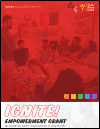
Resource | Publications,
This report presents a summary of the overall outcome of the First Round of Youth Voices Count (YVC)’s IGNITE! LGBTIQ Youth Empowerment Grants. In the course of nine months from April to December 2020 and in the midst of the COVID-19 pandemic, five youth-led and LGBTIQ-led organizations from five countries, namely Bangladesh, India, Philippines, Sri Lanka, and Viet Nam have been approved with seed funding of up to USD 2,100 to carry out their proposed activities.

Resource | Publications,
To mark Zero Discrimination Day, APCOM launches a short report that compiles stories and articles published in the Covid-19 Effect Series, a newsletter created by APCOM to profiles issues, challenges and solutions from the LGBTQI communities and key populations across Asia and the Pacific. Since April 2020, with more than 19 issues, the series has provided a platform to leverage the voices of people living with HIV and LGBTQI to share stories, highlight challenges, showcase innovation and build strength within these communities.
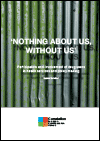
Resource | Publications,
There is an increasing tendency to get service users, such as Drug Users (DU’s) involved in health services and health policies. Participation is seen as an indispensable ingredient for good and effective policymaking and there exist numerous best practice examples of peer involvement in the field of health promotion and prevention. Health policies and health interventions are considered to be more effective and supported, when all relevant parties and communities (including civil society and the final target group) are being involved equally. In addition, policy makers and professionals realise that it is no longer appropriate to talk about and not with the final target group. All kind of communities and also DU’s demand their rights: they want to be heard and they want to be taken serious.

Resource | Publications,
On Zero Discrimination Day this year, UNAIDS is highlighting the urgent need to take action to end the inequalities surrounding income, sex, age, health status, occupation, disability, sexual orientation, drug use, gender identity, race, class, ethnicity and religion that continue to persist around the world.
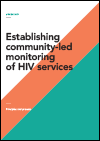
Resource | Publications,
This technical guidance is a living document that builds on guidelines and reports of the UNAIDS Joint Programme. The definitions contained herein are working definitions that are subject to change. Updates will also be added further to the work of the multistakeholder Task Team on community-led AIDS responses that was recently established by the UNAIDS Executive Director and the UNAIDS Joint Programme, and which will conclude its task in December 2021.

Resource | Publications,
This document highlights 10 well established Risk Communication and Community Engagement (RCCE) principles that have proven their power. Together they put communities at the heart of the roll out of new vaccines, treatments and tests and promote trust, the critical ingredient for all community action. Informed, engaged and empowered communities are the bedrock for the arrival of new vaccines, treatments and tests that will be introduced to reduce the spread of COVID-19 and save lives. With communities fully engaged and actively participating through the full cycle of planning, delivery and assessment for biomedical tools, demand for these tools can be increased, leading to widespread and effective uptake and use.
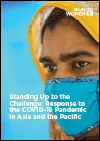
Resource | Publications,
This report presents some highlights from the past year of the pandemic. It traces what UN Women did to secure access to emergency hygiene and immediate relief, sustain life-saving essential services for escalating cases of violence against women and girls, integrate gender into national and sub-national crisis response strategies, and make women’s economic empowerment, both in terms of paid and unpaid labour, a fulcrum for resilience and recovery. Case studies in this report provide entry points and lessons learned on how to adapt programming and integrate women and girls in the COVID-19 response and recovery efforts.

Resource | Publications,
This decision tree helps organizations working on violence against women migrant workers decide when and how to best collect data on women migrant worker’s experiences of violence and their access and use of relevant services. These organizations include service providers, policymakers, national statistical offices, and development partner agencies. This decision tree guides data collectors through the various considerations, viable options, and alternative data sources for obtaining information without jeopardizing participants’ safety or the data’s integrity.
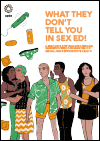
Resource | Publications,
This resource is divided into three main sections. In the first section, we discuss and unpack the terminologies frequently used in this factsheet. In the second section, we have curated tips for safe and pleasurable sex. Finally, in the third section, we have compiled information to answer commonly asked questions about reproductive health of transgender and gender diverse persons and their fertility choices.
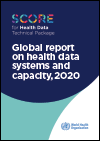
Resource | Publications,
The first global assessment on the status and capacity of health information systems in 133 countries, covering 87% of the global population.
It identifies gaps and provides guidance for investment in areas that can have the greatest impact on the quality, availability, analysis, accessibility and use of health data.





